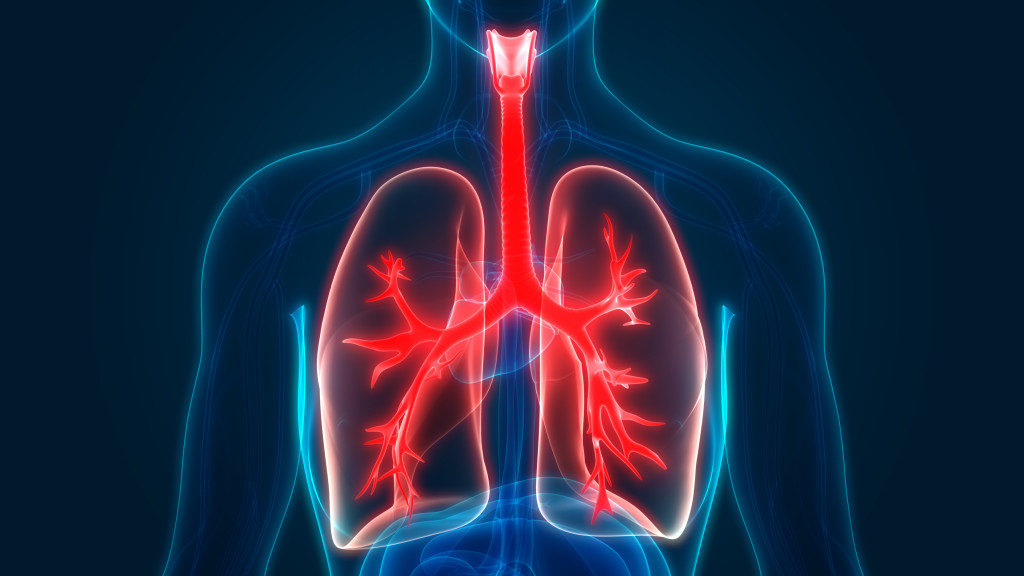Your lungs are one of the most important organs in your body. They take in oxygen and help to rid your body of carbon dioxide. This is why it is so important to keep them healthy and strong.
However, it is susceptible to various illnesses. COVID-19, a deadly illness, affects a person’s ability to breathe. One of the most common symptoms of infection includes coughing and difficulty breathing. Many of those who have recovered from it continue to experience shortness of breath months after they initially tested positive for the virus.
Scientists are still looking for an effective cure for the illness that already infected and killed millions around the world. More clinical trials are underway for the treatment of COVID-19.
Right now, the best way to fight COVID-19 is to take care of one’s health, especially the lungs. People who have an existing chronic respiratory condition, such as COPD (chronic obstructive pulmonary disease) are at a higher risk of experiencing serious symptoms of COVID-19. After the pandemic, there are other virus and illnesses that can affect the lungs.
The solution is to maintain healthy lungs. Here are five tips on how to do just that!
Quit smoking
Smoking is the worst thing you can do to your lungs. Those who smoke are at risk of developing lung diseases, such as COPD. Smoking can also cause someone to develop asthma or bronchitis. In addition, they are more likely to experience shortness of breath and chest pain than those who do not smoke.
You don’t need to quit all at once. It should be a gradual process because it is addictive. Those who quit cold turkey will experience withdrawal symptoms such as restlessness, irritability, headache, and insomnia. It would be best to seek the help of a doctor or a medical professional if you feel this way. More importantly, they can suggest a treatment plan that will make it easier for you to quit smoking.
Exercise regularly

Exercise is good for overall health. Moreover, your lungs need it to be strong. Those who exercise regularly are at a lower risk of developing respiratory conditions.
The more you exercise, the stronger your lungs will be. This is because when you work out, your body takes in more oxygen. In addition, exercise helps to clear out the lungs and reduce congestion. If you have asthma or other respiratory conditions, exercise can help to improve your symptoms.
It is important to consult with your doctor before starting an exercise routine. They can help create a plan that is right for you and that will help keep your lungs healthy and strong.
Exercise is most effective when paired with good breathing techniques. You can ask your doctor or physical therapist for breathing exercises that you can do before, during, and after exercising.
Eat a healthy diet
Eating a balanced diet is essential for keeping your lungs healthy. You can eat a variety of whole grains, vegetables, and fruits. These foods will give you the nutrients your body needs to fight off diseases and infections.
Vitamin D, iron, calcium, potassium, and zinc are among the nutrients that the lungs need to be strong and healthy. In addition, it is important to maintain a healthy weight because being overweight can make you more susceptible to respiratory complications.
It is also best not to eat too much red meat or processed food because these items cause inflammation of the respiratory system. They can lead to breathing difficulties and more serious conditions such as lung cancer.
Get plenty of rest
This tip is often overlooked but it is crucial to keeping your body as healthy as possible. When you lack sleep, your immune system becomes weaker and this makes it harder for the lungs to fight off infections and diseases. Those who study or work at night can experience these effects especially if they do not take the necessary measures to get quality sleep.
Here are some tips for getting a good night’s rest: make your bedroom cool and dark, shut down all electronics an hour before sleeping, and wear earplugs to drown out noises that can disrupt your sleep. Avoid drinking caffeinated beverages at least six hours before going to bed. You should also avoid nicotine and alcohol for at least five hours before sleeping.
Maintaining healthy lungs is vital for overall health. The five tips we’ve provided are a great place to start, but it’s important to consult with your doctor to create a plan that is tailored specifically for you.

